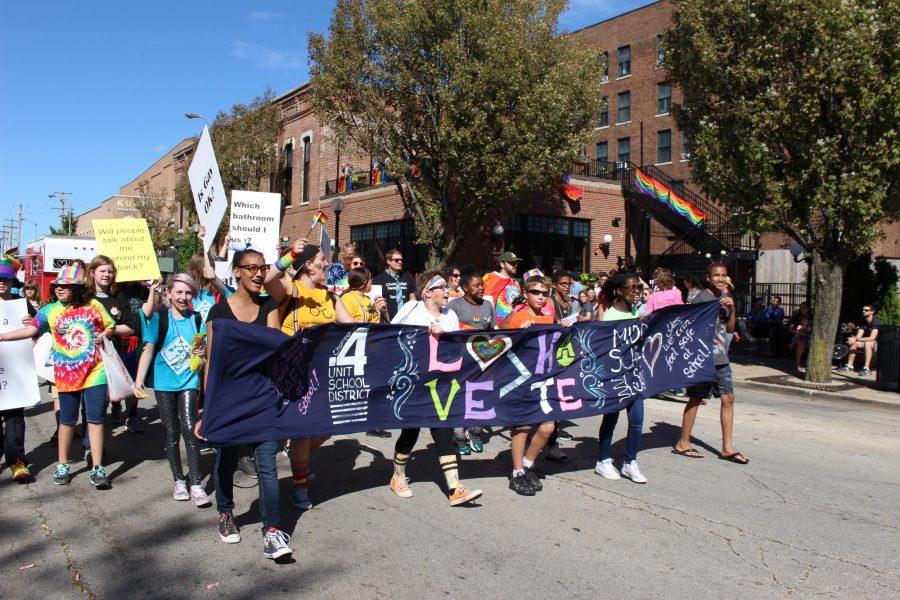Champaign LGBT inclusiveness above national average
Champaign Unit 4 School District promote a message of love and acceptance in the CU Pride Parade.
Nov 7, 2016
In Champaign, the LGBT community is treated more equally by the city government than the average city in the nation, according to a report released by the Human Rights Campaign (HRC).
“The Champaign score is 77, which is above the national average of 55,” said Xavier Persad, legislative council for the HRC. “Champaign also scored above the average of the nine cities in Illinois that we rated, which was 68.”
In the annual report, cities are given a score out of 100 based on criteria evaluating citywide resources, protections and services.
“We’re looking for non-discrimination protections that apply city-wide in employment, housing and public accommodation,” Persad said. “We’re looking at whether the city offers employees transgender-inclusive healthcare benefits.”
Persad said HRC also looks at whether a city has a contractor non-discrimination ordinance, which states that the city will not enter into a contract with any business that doesn’t have inclusive and non-discrimination LGBT policies for its employees.
Get The Daily Illini in your inbox!
In 2013, Champaign received a score of 74 out of 100. The city received a score of 70 and 78 in 2014 and 2015, respectively.
“A small amount of those (changes in) points is due to changes that we have in our scorecard year to year based on the legal landscape changing, and items being added and taken away,” Persad said.
While Champaign scored higher than both the state and national averages in the report, Persad said there are still areas in which the city could improve.
“It looks like Champaign isn’t getting credit for … appointing an LGBTQ liaison in the police department, and offering services to particularly vulnerable members of the LGBTQ community,” he said. “Like LGBTQ youth, LGBTQ homeless individuals, LGBTQ elders, people living with HIV or AIDS.”
Champaign also doesn’t have transgender-inclusive healthcare benefits, Persad said, which would offer city employees the option of at least one healthcare plan that is “fully inclusive of transition-related services.”






